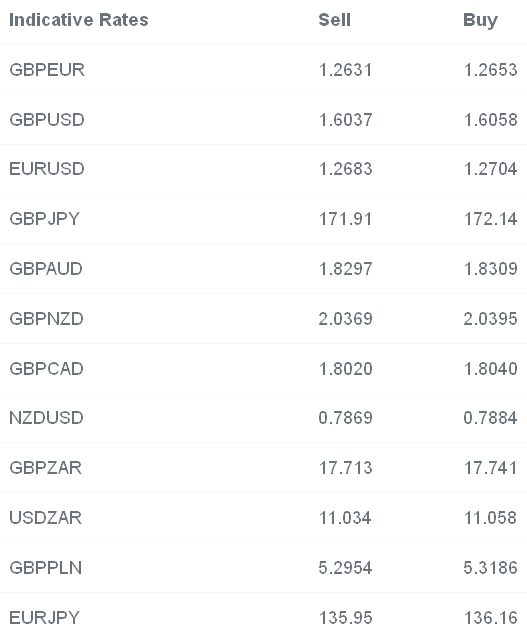Sterling was in retreat from the get-go yesterday morning although there was little to really pin the weakness on to. Some blamed political issues, in particular the ascent of UKIP and their inclusion within at least one of the televised debates party leaders will take part in before next May’s election. As we stated in yesterday’s Weekly Update, polls and general opinion seem to suggest a hung parliament will be the most likely result of next year’s election with UKIP playing the role of spoiler. Whether the Conservative party will attempt a minority government seems likely in my eyes. In any case a hung parliament is not a particular worry for GBP; UKIP’s policy of a referendum on EU membership is however, especially given the reaction that the Scottish referendum had.
Others blamed the continual rise of the euro since Draghi’s disappointing press conference nearly a fortnight ago. Euro strength despite awful economic data has been a hallmark of the euro since the advent of the Global Financial Crisis and for all the worries about a near-term recession in Germany, political issues within Italy and looming fiscal crisis in France, the euro has rallied on higher. Some analysts are looking for GBP/EUR to continue its run lower to 1.25. A lack of new chatter around looser monetary policy in the euro is likely to only cause the euro to strengthen further.
Overnight news from the British Retail Consortium has not helped the pound’s position. Retail sales fell by 2.1% in September compared to the same month a year ago as the effects of the unusually warm beginning to Autumn weighed on the demand for winter apparel. Food sales were also lower and prices have continued to fall with food inflation at an all-time low in September.
Of course, this will have an effect on today’s main UK release of CPI and other inflation metrics. Record low inflation in food prices alongside the continual and pronounced fall in oil markets will push inflation lower through September; it is a case of how far in my opinion. Given that news from British Retail Consortium, we have to be looking at the 1.4% expectation from the market as being overly optimistic and I would not be surprised if we a see a print of 1.2/1.3%. This is only half of the real wage argument, and also lessens the pressure on the Bank of England to increase interest rates soon. A poor print could be the nail in the coffin for expectations of a November rate hike, although those have dwindled of late.
The other main announcement of the session, and also almost guaranteed to be negative, is the latest run of investor expectations in Germany courtesy of the ZEW survey. Politics and bother economics are both momentum stories; whoever or whatever has the momentum is the story. At the moment, the momentum within the Germany economy is of collapse, something that last week’s industrial and factory output numbers reinforced.
The combination of continued pressure from Russian and Ukrainian issues, a slowdown of the Chinese economy and local Eurozone problems is expected to push the index’s reading of the current economic situation to the lowest since July of last year with six month expectations set to fall into negative territory for the first time since November 2012. As we have noted, poor data is not hurting the euro but the stabilisation of policy expectations is instead strengthening the single currency. We are unsure as to whether the ZEW survey will be able to reverse this trend.

